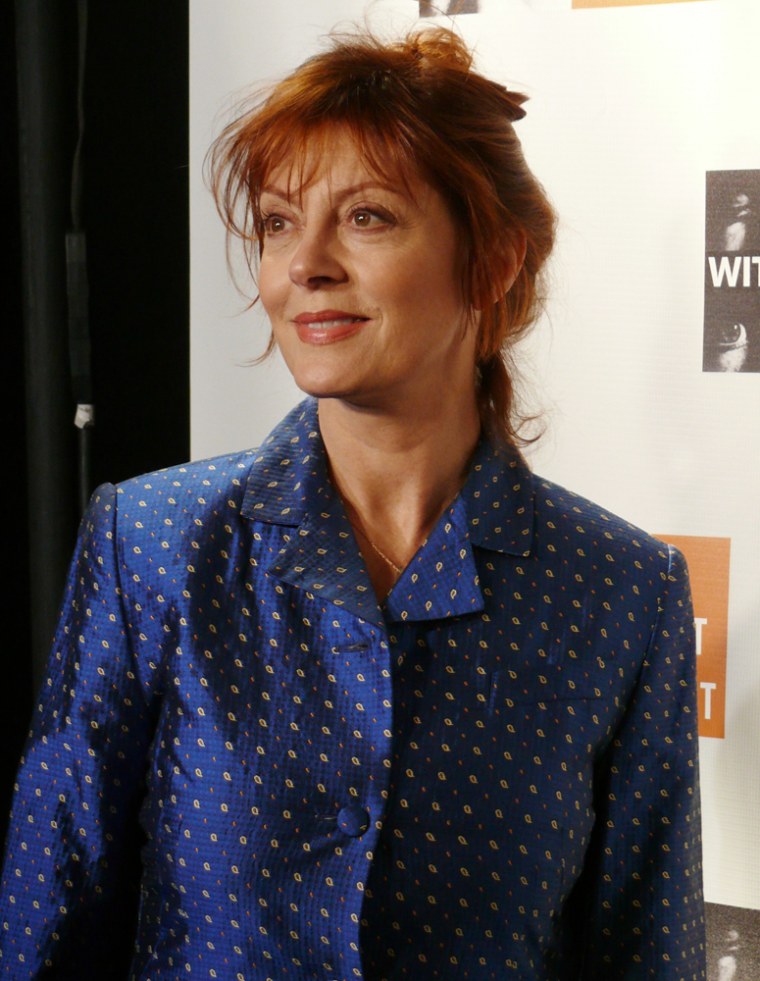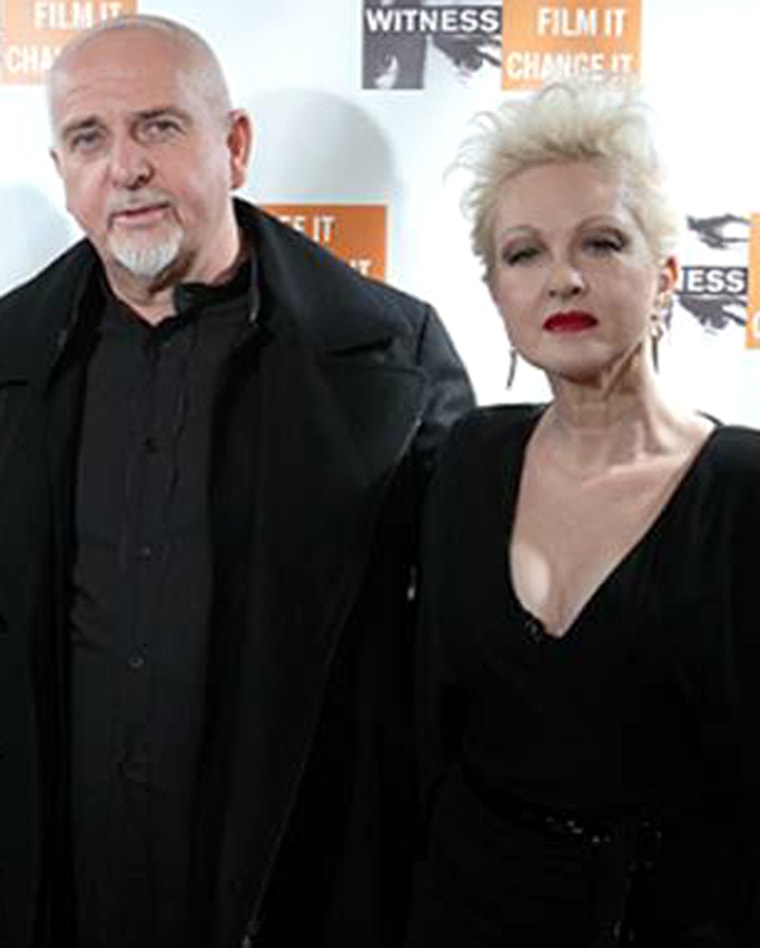, a nonprofit organization that partners with human rights groups and trains them to use video to document abuses.
WITNESS was founded in 1992 from an idea Gabriel had while traveling with Amnesty International’s Human Rights Now! Tour a few years earlier. On the tour, Gabriel brought along a small camcorder to record the stories he heard.
WITNESS has since trained and partnered with activists in more than 70 countries to use video and online technologies to document human rights abuses and to raise awareness of abuses. Since becoming an independent nonprofit organization in 2001, WITNESS has launched the , an online video community for sharing human rights videos.
Gabriel is a singer and songwriter who rose to fame as lead vocalist for the band Genesis but has since found success as a solo artist. In addition to being the co-founder of WITNESS, he is involved with a variety of other causes including Amnesty International.
Academy Award-winning actress Sarandon has worked with WITNESS for 17 years and was among the celebrities who attended the fifth annual benefit dinner and concert for the organization on Nov. 11. Sarandon's next film, " ," directed by Peter Jackson, is due out in December.
Peter Gabriel
Q: Can you tell me a little bit about the organization, WITNESS, and what your role is?
Gabriel: Well, I had an idea about 20 years ago and it was picked up 17 years ago, just to try and use video more in human rights campaigning. People who have been tortured, or who have suffered in horrible ways around the world often find their experiences denied and buried. When there was video, it was a lot harder to conceal what was going on. Now all that’s changed because phone companies have put cameras in the hands of most of the world’s population. There are a whole lot of new opportunities, so that’s what we’re focused on.
Q: How has it evolved through the years, and how do you expect it to evolve in the future?
Gabriel: It’s evolved from a very small operation, and now it reaches quite a lot of people. We hope other groups incorporate video training sessions and get some experience. Now, with the opportunities of the internet, and most particularly the mobile phone, we ought to be able to create a mirror, that just reflects what’s going on in the world that anyone can upload to make connections to campaigning and hopefully bring some change.
Q: What’s unique about the organization, and what are some of its successes that you’re proud of?
Gabriel: It’s lightweight, agile, responsive, and I think able to pioneer, so it has a sort of narrow focus sometimes. We’ve had laws changed in some countries. Mental health issues in Mexico, and there was a campaign against the murder of women. In the Congo, some of the WITNESS footage was used to incriminate (former Congolese rebel leader Thomas) Lubanga in the International Criminal Court. There have been campaigns in California too, with youth imprisoned and it’s all the time done with some amazing partner organizations, but I think there’s many, many examples of different countries. There’s much more work to do, but I think they have made a real difference.
Susan Sarandon
Q: Why is this cause dear to you and what does it mean to you?
Sarandon: WITNESS is a great organization because they really empower people in the simplest way possible, and that is to give them a means to record human rights violations. They really have a profound and very concrete result.

I’ve been working with them for 17 years. There’s a number of documentaries that have been made because of the footage that people gather. It turns potential victims into, actually, people that work for change. In this instance, they’re highlighting violence against women, which of course is something that affects everybody.
Q: Can you tell us about a memorable moment you’ve had working with WITNESS?
Sarandon: It’s always great when you do something and then you find out that a law has been passed, or people have been jailed, or people have been freed, or a crime has been solved, and that’s happened through the years on a number of occasions.
I know one documentary that I worked with, lawyers that were connected with them and footage they had gotten about abuses in a Mexican mental hospital resulted in a number of changes to laws and of course the cleaning up of that particular facility.
Very often when you’re involved in any kind of, I hate to say cause, it’s kind of like a catch-word, but when you’re working with a group that’s trying to make some kind of a change, very often, the changes are very small, if at all. It’s kind of the process that you have to embrace. But Witness has gotten a lot of real change, so it’s always fun to support them.
